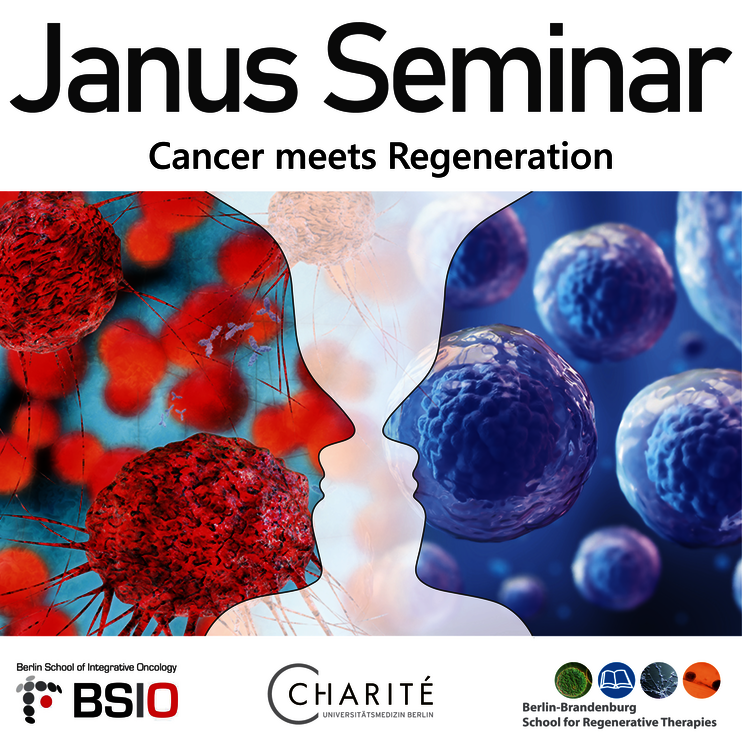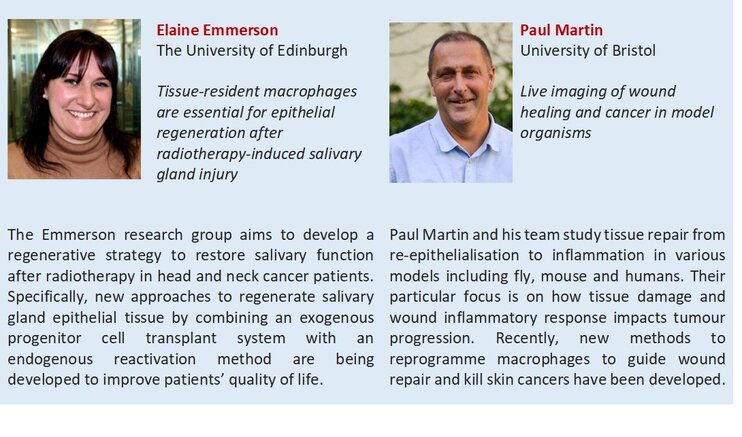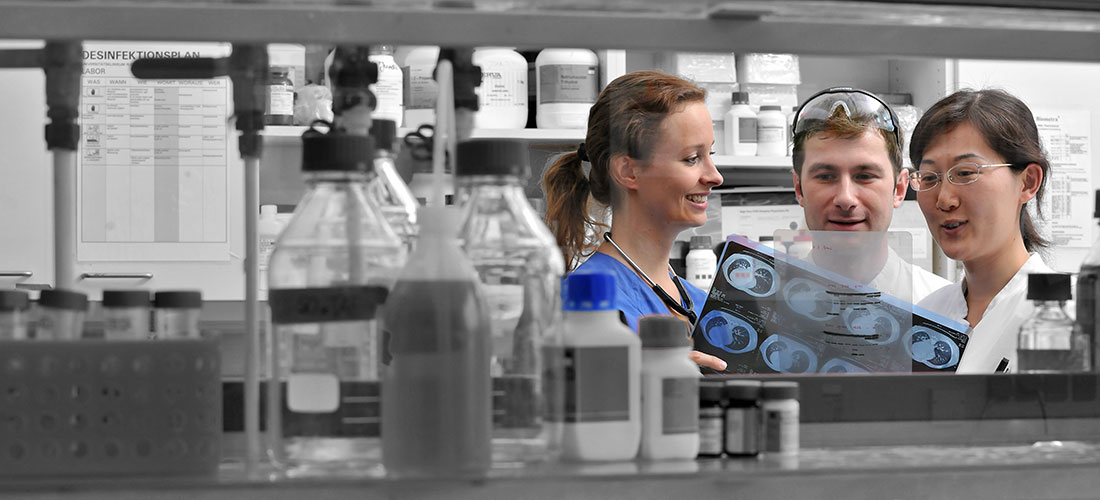
Dear colleagues,
We cordially invite you to the next Janus Seminar – Cancer meets Regeneration on October 09, 2023 at 4.00 pm in the Auditorium of the Cranach House (Föhrer Str. 15, CVK).
Please register here.
The Janus seminar is a joint seminar series of the Berlin School of Integrative Oncology (BSIO) and the Berlin School of Regenerative Therapies (BSRT). The second edition of the seminar will focus on regenerative processes and pathways which lead to recovery of tissue and its natural functions after cancer therapy, presented by Elaine Emmerson and Paul Martin.
Interested early career scientists will have a chance to Meet the Speakers at 2.00 pm in the Cranach House. Take the opportunity to network and discuss your scientific questions!
We are looking forward to your participation!
The organizing team
Kimberly, Hristiana, Tomislav and Paul

Elaine Emmerson
Tissue-resident macrophages are essential for epithelial regeneration after radiotherapy-induced salivary gland injury
The salivary glands often become damaged in individuals receiving radiotherapy for head and neck cancer, resulting in xerostomia, or chronic dry mouth. This leads to detrimental effects on their health and quality of life, for which there is no regenerative therapy. Macrophages have long been considered key cells in the tissue repair process and are attractive therapeutic targets due to their unrivalled capacity to drive tissue repair and regeneration. We have shown that macrophages are the predominant immune cell type in the murine salivary glands and in their absence effective tissue repair following radiotherapy injury is severely comprised and salivary gland function is impaired. Furthermore, via in vivo analysis and ex vivo live cell imaging we have shown that macrophages intimately associate with progenitor cells after injury. Our data highlight the bidirectional communication between macrophages and epithelial cells in the salivary gland and indicates a strong case for exploring the therapeutic potential of manipulating macrophages in order to promote tissue repair and thus minimise salivary gland dysfunction after radiotherapy.
Paul Martin
Live imaging wound healing and cancer in model organisms
We study various aspects of tissue repair from re-epithelialisation through to inflammation in several genetically tractable model organisms from fly to mouse, and even man. We know that inflammation is both beneficial for healing in that it fights infection and drives wound angiogenesis, but has negative consequences also, in that it causes scarring and is aberrant in chronic wounds. We use Drosophila embryos and pupae and translucent zebrafish larvae, all of which are amenable to live imaging and mathematical modelling, to make movies of immune cell migration into the wound and to dissect the genetics of inflammatory cell recruitment towards tissue damage (in the presence and absence of infection), and its consequences, and, its parallels with cancer inflammation. We are particularly interested in how tissue damage and the resultant wound inflammatory response, as for example after cancer biopsy or surgery, might impact cancer progression, and vice versa. Most recently, we have used zebrafish to test drive how one might reprogramme macrophages, via their phagocytosis of miniature artificial protocells containing “phenotype switching” cargoes, to make them better able to guide perfect wound repair and to kill skin cancers.



